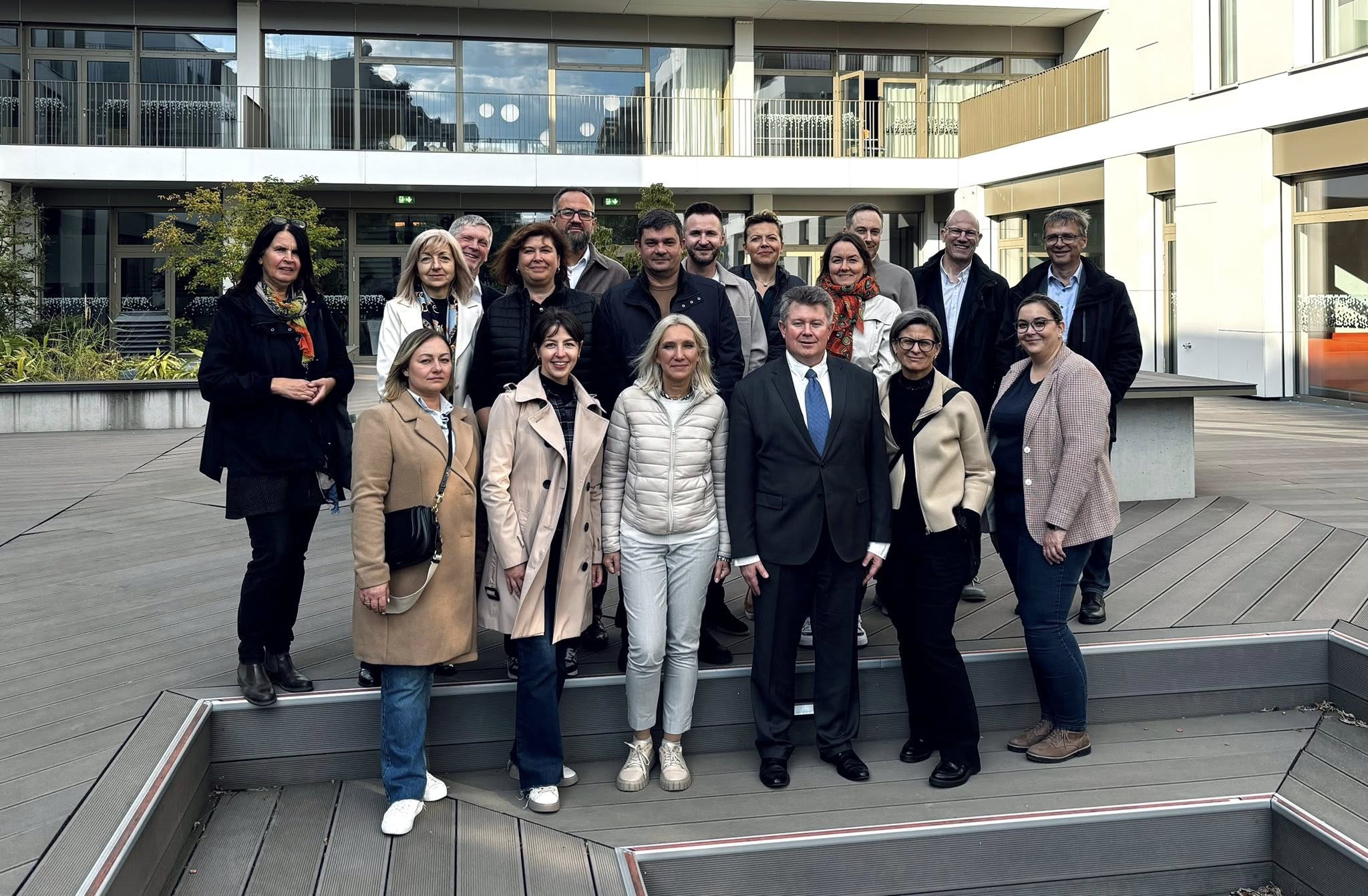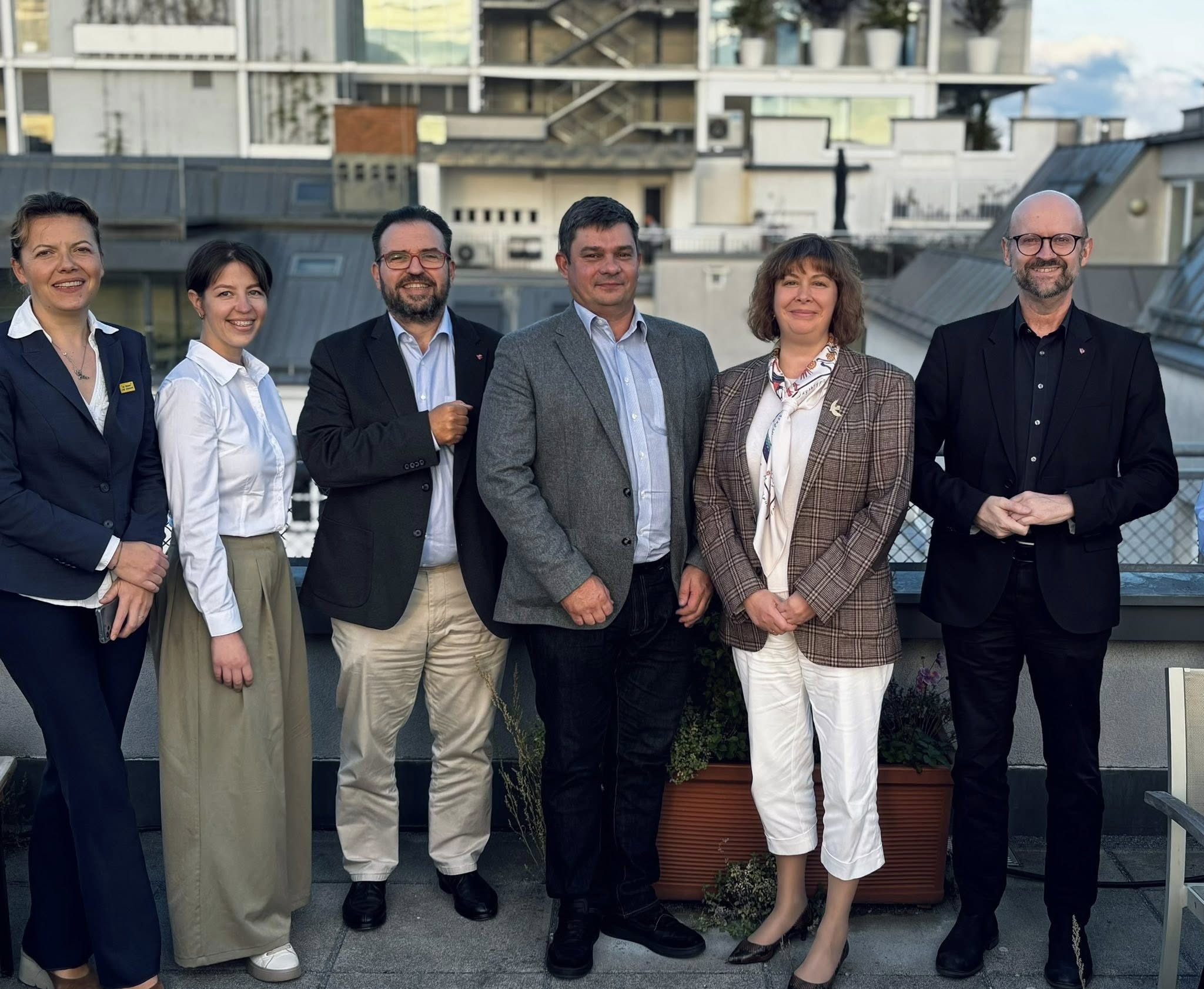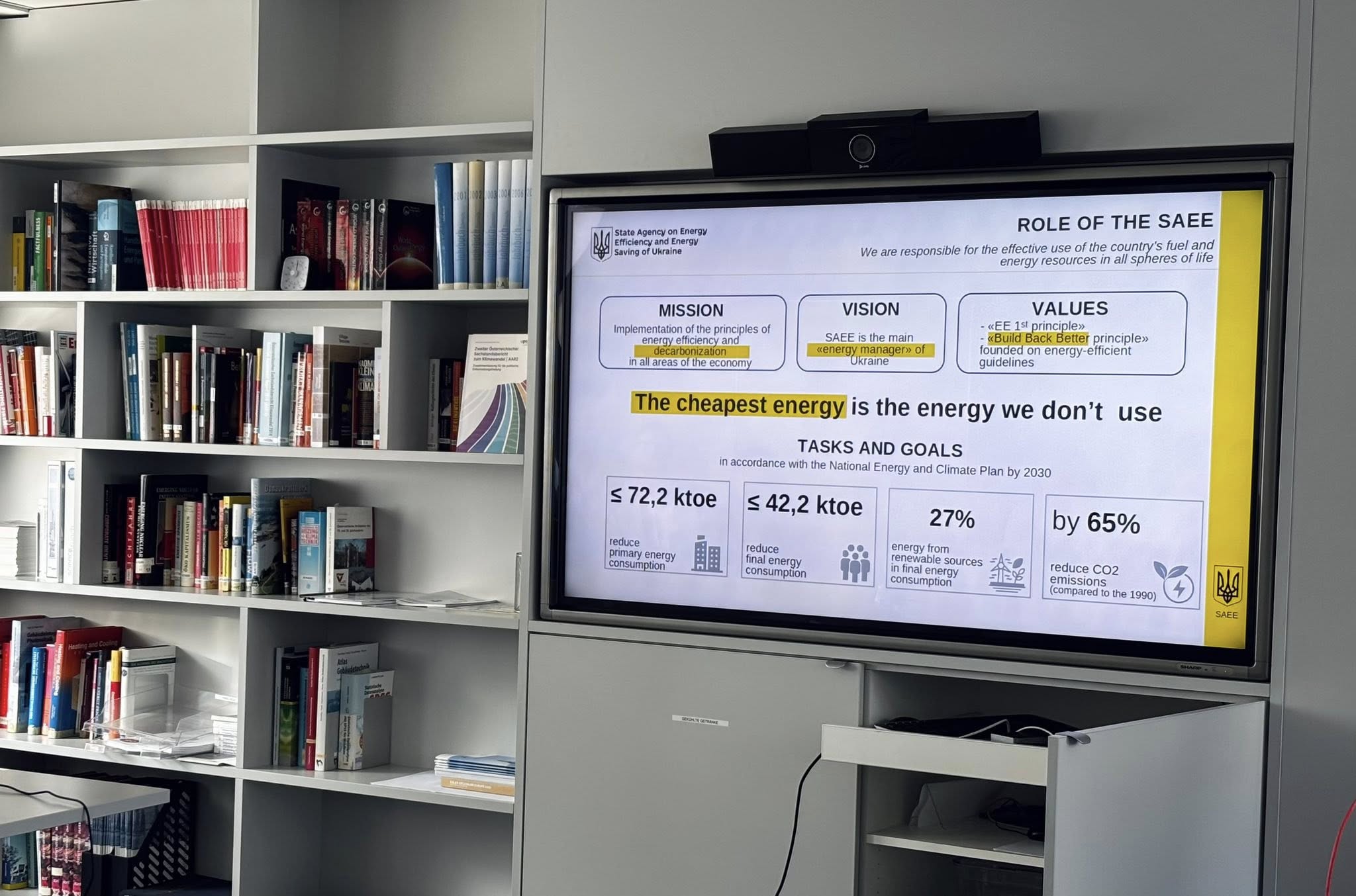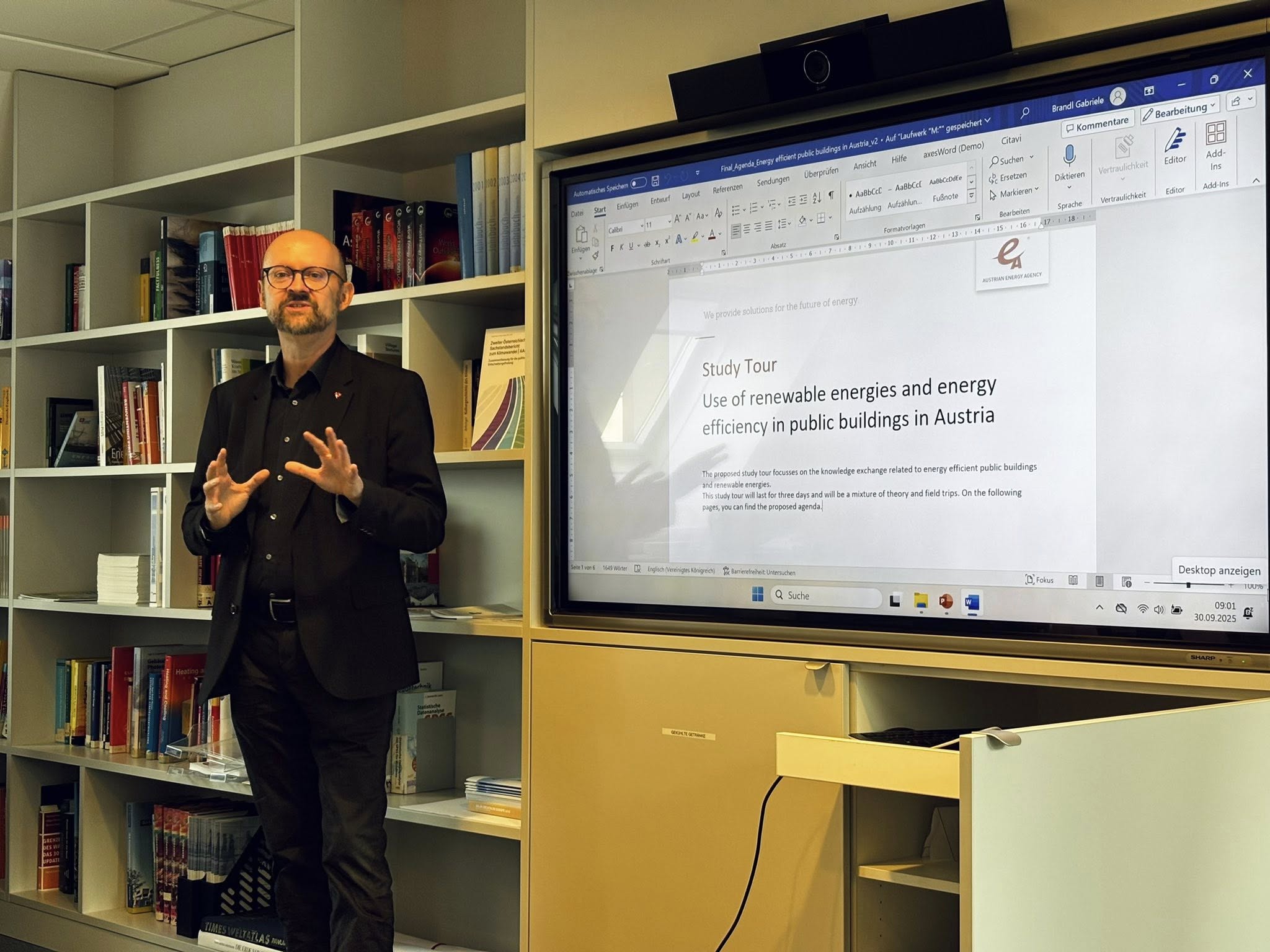Ukraine and Austria Strengthen Cooperation in Energy Efficiency and Decarbonization
The State Agency on Energy Efficiency and Energy Saving of Ukraine (SAEE), together with representatives of Ukrainian government institutions, took part in a working visit to Vienna. The strategic goal of the visit was to deepen international cooperation and exchange experience with Austria in the areas of energy efficiency, decarbonization, and the implementation of renewable energy sources in the public sector.
Austria has extensive experience in implementing climate policy — from federal legislation requiring the annual renovation of 3% of the total area of public buildings, to municipal strategies such as the Vienna Heating Plan 2040. This plan sets a clear course toward the city’s complete phase-out of fossil fuels in its district heating system.
The Ukrainian delegation included representatives of the SAEE, the Cabinet of Ministers of Ukraine, the Ministry of Economy, the Ministry of Environmental Protection and Agriculture of Ukraine, and the Ministry of Finance of Ukraine.
The visit focused on European environmental initiatives, including the EMAS (Eco-Management and Audit Scheme), which is being actively implemented in the healthcare sector, as well as the national certification system klimaaktiv, which covers a wide range of energy efficiency standards for buildings of various purposes.
An example of successful implementation of energy-efficient solutions is the reconstruction of the Austrian Parliament building — a flagship project that demonstrated how modern technologies can reduce energy consumption by more than 50% while preserving historical architectural heritage.
During the visit, the SAEE held a working meeting with the management of the Austrian Energy Agency, during which both sides agreed on concrete steps for further partnership development and experience exchange.
The visit became an important milestone in the implementation of European directives in the field of energy efficiency. The knowledge and experience gained will serve as a benchmark for the further modernization of public buildings and the development of sustainable energy policy.
Following the visit, participants reached a common conclusion: a successful energy transition is possible only through a comprehensive approach that combines clear legislative regulation, effective financial instruments, and institutional support.



